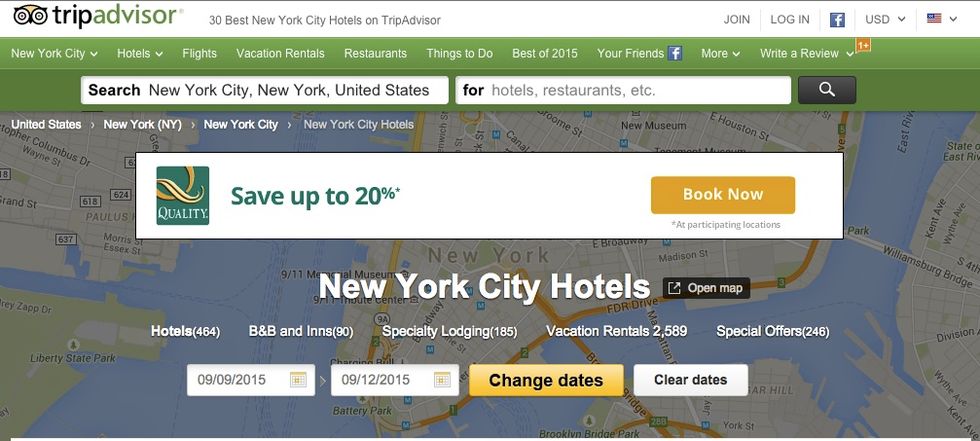
Screenshot

Whenever a large number of media outlets all notice the same story not involving a public figure or obviously newsworthy event, and then all report it from the same perspective within a short period of time, there's a good chance public relations firms are involved.
And when that story is part of an expensive lobbying efforts in Washington D.C. aimed at undercutting a competing business interest, the goal probably isn't to benefit consumers. Such is the case with a dispute between the American Hotel and Lodging Association (AHLA) and third-party booking sites.
Recently, several prominent news outlets have run "buyer beware" stories about third-party hotel reservation websites. The risk to consumers is that politicians, at the behest of the hotels, will overreact to a few stories that may or may not indicate real problems and shut down third-party sites that promote competition and ultimately benefit consumers.

Despite driving them business, there are reasons why sellers could prefer customers only buy direct. For one, it would make it more difficult for consumers to compare prices from different sellers, and thus place less competitive pressure to lower prices. Forcing more customers to use their sites directly also provides opportunities to up-sell or cross-sell additional products, techniques perfected by the largest online retailer, Amazon.
A different but similar dynamic in the airline industry highlights why hotels may be unfairly targeting third-party bookers. There Delta has withdrawn their fares and schedules from popular sites like TripAdvisor, forcing more consumers to buy directly from their own site. Other airlines have also restricted access to their information, clearly seeing some value in forcing consumers to book directly through their own website. According to the Travel Technology Association, the sites provide as much as $6.7 billion in value per year for travelers.
Stories in the Washington Post, the New York Times, the Huffington Post, on local TV affiliates, and syndicated across many more outlets, have reported anecdotal accounts of problems encountered by customers trying to book hotel stays, and then quoted AHLA officials as if they were simply looking out for consumers. The truth is likely murkier.
This is not necessarily to say that AHLA doesn't legitimately care if some consumers have been wronged, but rather that they have additional interests, like the profit motives of their members. And based on their ongoing lobbying efforts, those interests could harm competition and raise prices for consumers.
In some cases relayed by the stories, individuals calling help lines were falsely led to believe that they were talking with specific hotels, rather than a third-party. That's clearly not acceptable and, if it is actually widespread, should be dealt with. But most of the stories just featured what appeared to be simple errors of the kind that occur in any business. Given the millions served by the companies in question, some errors are to be expected.
Also being used to justify concern is confusion on the part of some users regarding whether they are using the website of the hotel or a third-party. But that confusion is most often likely a reflection of a lack of sophistication – particularly among the elderly – regarding the use of the internet and how to understand the results of searches. This is a problem, but not necessarily one for which reservation sites are to be blamed.
Nevertheless, these issues are being used to convince politicians to work on behalf of hotels. Several have written letters to the Federal Trade Commission and the Department of Justice encouraging investigations, which runs the risk of politicizing the regulatory process to advantage a special interest. Certainly if there is cause to suspect wrongdoing then investigations should be carried out, but if that's the case then Congressional intervention shouldn't be needed. It raises even further concerns when that intervention is spurred by industry lobbying.
As a rule buyers should always beware, and unscrupulous businesses should be punished if they engage in fraudulent practices or otherwise run afoul of the law. But news readers should also be weary of one-sided stories that might be more about advancing one business at the expense of another rather than protecting consumers.
–
TheBlaze contributor channel supports an open discourse on a range of views. The opinions expressed in this channel are solely those of each individual author.